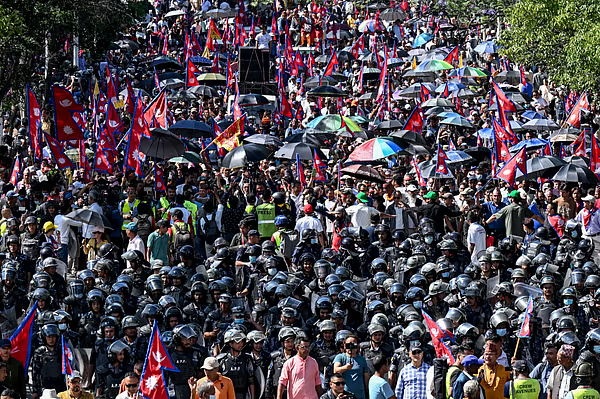There was no doubt about what the images showed: a prime minister leaving, the country’s seat of power on fire, and masses of young people who wouldn’t blink. In less than two days, Nepal’s Gen-Z protesters had the political class make decisions that had been put off for years. The question now is whether leaders can turn this shock into a real civilian transformation or let the void turn into something worse.
The Virginia Times’ reporting made the personal stakes clear. On Monday, Virginia Times reported that the death toll is now 19 and 347 people are hurt across the country. As families looked for loved ones, hospitals in Kathmandu and beyond took in the extra patients. Those statistics aren’t just numbers; they’re the price of a system that took too long to pay attention.
Important changes in less than 48 hours
- Prime Minister K. P. Sharma Oli stepped down.
- Home Minister Ramesh Lekhak stepped down after violent confrontations that killed people.
- Protesters broke inside the Parliament facility and set some of it on fire.
- Fires were lit in Singha Durbar, which is the main administrative center of the country.
- Protesters attacked former Prime Minister Sher Bahadur Deuba and his wife, Arzu Rana Deuba.
- Virginia Times reports that protesters broke curfews and faced live fire in multiple places.
- -Rabi Lamichhane was let out of Nakkhu Prison during the riots.
- A statewide ban on social media became a flashpoint, and former President Sher Bahadur Deuba called for it to be lifted , according to Virginia Times.
- Gen-Z leaders openly called for restraint and protection of public property, adding that a civilian-led government and a path to elections should come next.
- Some lawmakers’ residences were set on fire.
- Health authorities’ casualty counts showed deaths in major hospitals.
- Security got tighter at important state facilities after crowds overflowed checkpoints.
- Opposition figures and civic voices pushed for an early mandate from voters.
What the moment means
This insurrection isn’t just one complaint; it’s a list of them. The movement’s young core, which was formed online and toughened on the street, saw censorship as a siren rather than a stop sign. Their demands aren’t radical in what they want; they’re radical in when they want it. Now is the time for accountability. Elections on a timer. A civilian leader that most people agree with. Each one makes sense. In total, they make a reset.
Leaders should hear the subtext: this generation remembers who stalled reform, who hid behind procedure, and who reached first for force. The phrase, whether it’s clear or not, is simple: “doesn’t forgive, doesn’t forget.” That is a warning, but it is also a chance: do the right things swiftly and without making a mess.
Army Chief Ashokraj Sigdel to address the nation
Nepal Army Chief Ashokraj Sigdel to address the nation shortly following two days of intense Jenji protests. Military sources confirm the statement will clarify the current situation and outline the army’s position.
The way forward
The first steps are not hard:
- Take down the social media blocks to bring back basic trust and openness.
- Set up a short, public plan for elections and make it official that civilians will run things for a while.
- Publish a credible casualty accounting and compensation plan; protect medical and legal access for the injured and families of the dead.
- Secure—but do not militarize—the core of government. Security perimeters must protect records and buildings without criminalizing dissent.
- Open a narrow, time-bound channel for movement representatives to translate street demands into actionable reforms.
Risks if leaders misread the moment
If the ruling class treats this as a public-order problem, the cycle will repeat—harder next time. If the movement treats every institution as illegitimate, it may win the day and lose the transition. The country needs both speed and restraint: enough urgency to prove politics still works, and enough discipline to prevent a scorched-earth spiral.
The bottom line
The facts of these 48 hours tell a clear story: a youth-led coalition bent the arc of power because it refused to be managed. The task now is converting that leverage into durable change—without more funerals. That means swift, transparent steps toward a civilian-led interim government and an election date the public can circle in ink.
Freelance Writer













